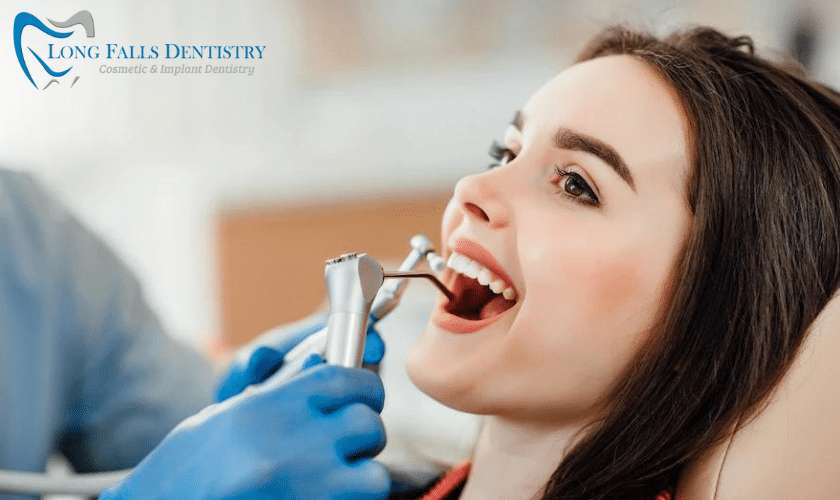Most people are familiar with the idea of getting their teeth cleaned at the dentist. It’s often a necessary part of dental maintenance, and it helps to ensure that your overall oral hygiene remains in good condition. If you want to maintain good oral hygiene, regular dental cleanings are essential. A dental cleaning is a professional procedure performed by a dental hygienist or dentist that removes plaque and tartar buildup from your teeth. But what exactly does a dental cleaning do for your oral hygiene?
Here are Some Benefits of Having a Dental Cleaning
Here are five things dental cleanings can do to help improve your oral hygiene:
1. Remove Plaque:
Plaque is a sticky film that forms on teeth and can contribute to decay and gum disease. During a dental cleaninsg, the hygienist will use special instruments to remove plaque from your teeth. This helps to prevent further decay and can reduce your risk of gum disease.
2. Remove Tartar:
Tartar is a hard substance that forms on teeth when plaque isn’t removed. This can be difficult to remove without the help of a professional, so it’s important to get your teeth cleaned regularly. During a dental cleaning, the hygienist will use special instruments to remove tartar from your teeth.
3. Check for Cavities:
During a dental cleaning, the hygienist will also check for cavities. This helps to identify decay early and allows for treatment to be done before the decay becomes too serious.
4. Polish Teeth:
After the plaque and tartar have been removed, the hygienist will use a special polish to remove any remaining stains and make your teeth look brighter and cleaner. This can help to improve the overall look of your smile.
5. Provide Advice:
During a dental cleaning, the hygienist can also provide advice on how to keep your teeth and gums healthy. This can include tips on brushing, flossing, and other oral hygiene habits.
6. Prevents Gum Disease:
Plaque and tartar buildup can also lead to gum disease. During a dental cleaning, a dental hygienist or dentist will remove the buildup, preventing gum disease and protecting your gums from further damage.
7. Improves Breath:
Plaque and tartar buildup can cause bad breath. During a dental cleaning, a dental hygienist or dentist will remove the buildup, improving breath and eliminating bad odors.
8. Prevents Tooth Loss:
Plaque and tartar buildup can lead to tooth loss due to decay and gum disease. During a dental cleaning, a dental hygienist or dentist will remove the buildup, preventing tooth loss and protecting your teeth.
9. Detect Early Signs of Oral Health Problems:
It can also help to detect early signs of oral health problems, allowing for prompt treatment and prevention of further damage. A dental cleaning can also improve the appearance of your smile and make your mouth feel fresher and cleaner.
10. Enhances Your Smile:
Plaque and tartar buildup can make your teeth look dull and yellow. During a dental cleaning, a dental hygienist or dentist will remove the buildup, making your teeth look brighter and your smile more attractive.
Conclusion:
In conclusion, dental cleaning is an important part of maintaining good oral hygiene. It helps to remove plaque and tartar, check for cavities, polish your teeth, and provide advice on how to keep your teeth and gums healthy. So, make sure to schedule regular dental cleanings to ensure your oral hygiene is in the best shape possible.
FAQs:
A: For optimal oral health, it is recommended that adults get a professional dental cleaning every six months.
A: Brushing is the act of using a toothbrush and toothpaste to clean the surfaces of your teeth, while flossing is the act of using dental floss to clean in between the teeth and below the gum line.
A: Brush twice a day for two minutes with fluoride toothpaste, floss daily, avoid smoking, limit sugary foods and drinks, and visit your dentist for a professional dental cleaning twice a year.

